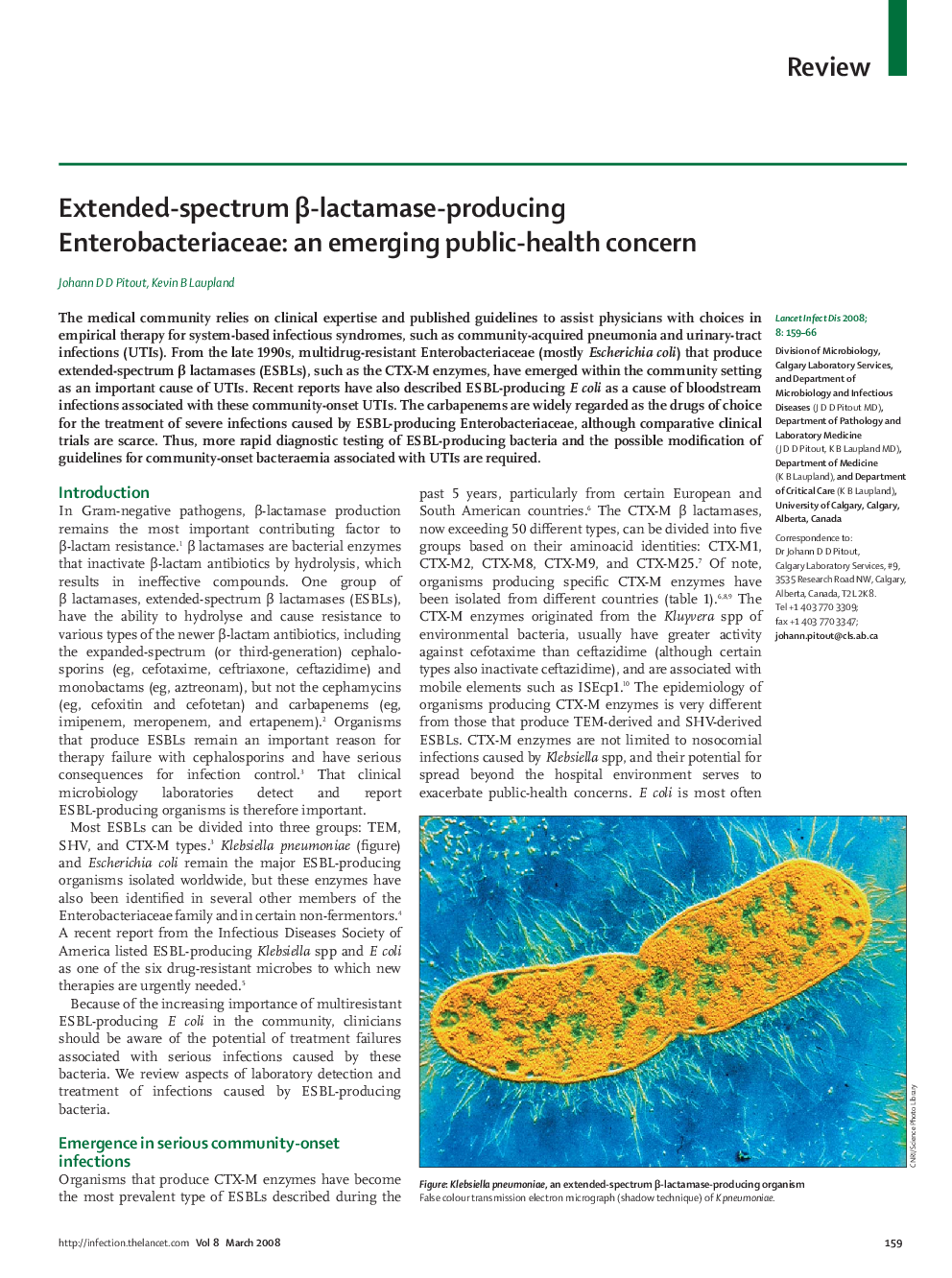| کد مقاله | کد نشریه | سال انتشار | مقاله انگلیسی | نسخه تمام متن |
|---|---|---|---|---|
| 3411271 | 1224127 | 2008 | 8 صفحه PDF | دانلود رایگان |

SummaryThe medical community relies on clinical expertise and published guidelines to assist physicians with choices in empirical therapy for system-based infectious syndromes, such as community-acquired pneumonia and urinary-tract infections (UTIs). From the late 1990s, multidrug-resistant Enterobacteriaceae (mostly Escherichia coli) that produce extended-spectrum β lactamases (ESBLs), such as the CTX-M enzymes, have emerged within the community setting as an important cause of UTIs. Recent reports have also described ESBL-producing E coli as a cause of bloodstream infections associated with these community-onset UTIs. The carbapenems are widely regarded as the drugs of choice for the treatment of severe infections caused by ESBL-producing Enterobacteriaceae, although comparative clinical trials are scarce. Thus, more rapid diagnostic testing of ESBL-producing bacteria and the possible modification of guidelines for community-onset bacteraemia associated with UTIs are required.
Journal: - Volume 8, Issue 3, March 2008, Pages 159–166